The e-commerce ecosphere is jam-packed with different platforms. It is difficult to decide the clear winner. To do that you have to go through a long list of deciding criteria. That is not my goal.
My aim is to help you choose the right one from the 5 well-known e-commerce platform in the market.
I have compared the platforms compare based on their features and pricing. You are the best judge of your requirements. If you go through the strength and weakness of individual platform will be easy to select the right one.
Peek into the following table and get firsthand information about platforms.
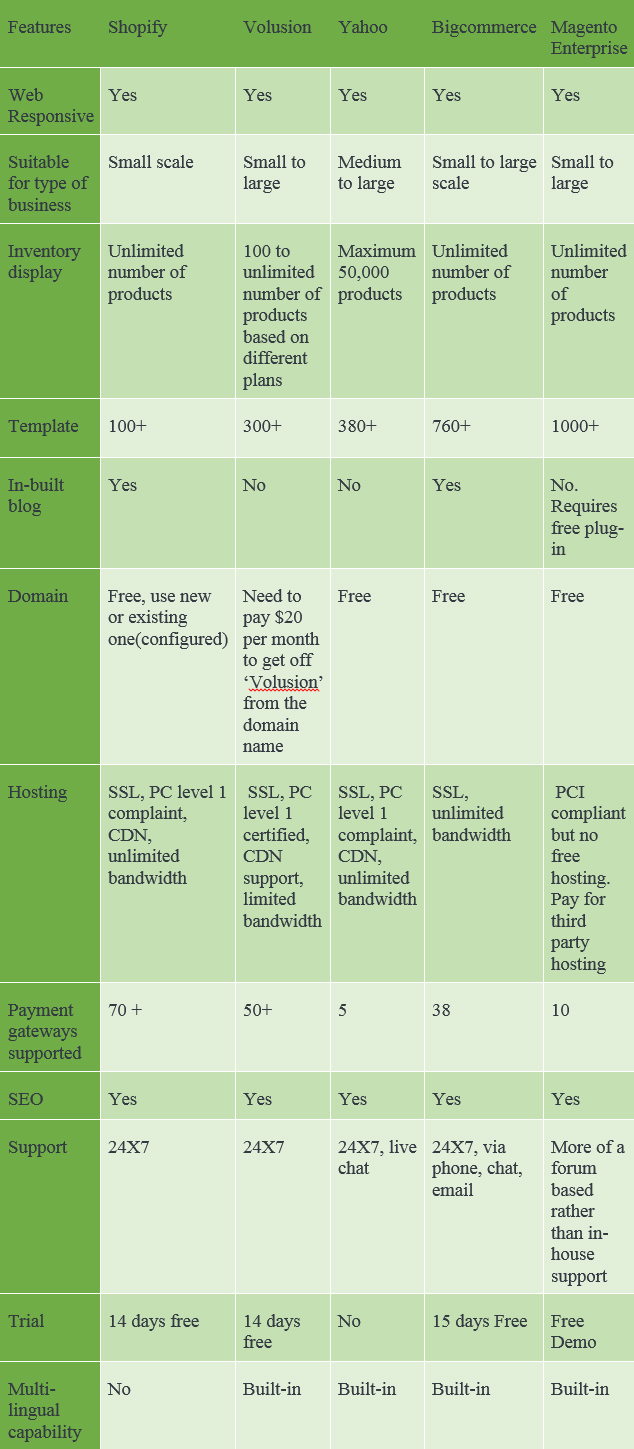
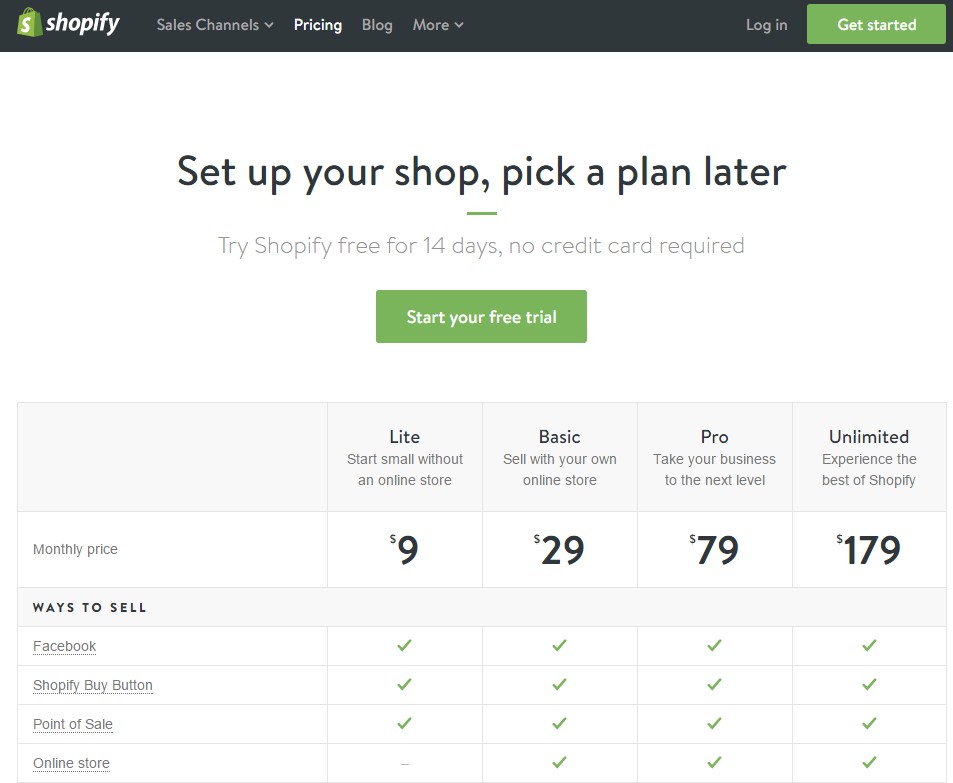
Shopify founded in 2004 has over 200,000 merchants as its users. The total merchandise volume generated on this platform exceeds $10billion.
Shopify allows easy setup of your online store. It supports small-medium businesses that do not have a large inventory of products. It is easy to migrate your existing store from another platform to Shopify.
See in below screenshot a Magento to Shopify migration.
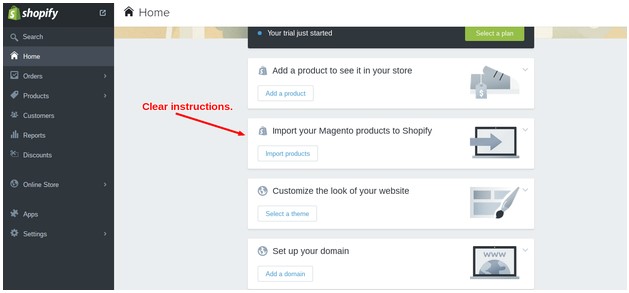
Shopify has an easy migration set-up for new store owners. They carry out migration without missing a sale.
- Intuitive interface, easy-to- use
- Integrated with over 70 payment gateways
- Knowledge- support from the dedicated e-commerce university with forum discussion and supplementary support.
- Built in blog for content marketing support.
- Choose from beautiful website templates
- High- rated customer service
- No Hidden costs with 14 days free trial
- Not suited for online store with large inventory.
- Not feature-rich as other premium e-commerce platforms (less feature make it easy to use)
- No support for multiple languages.
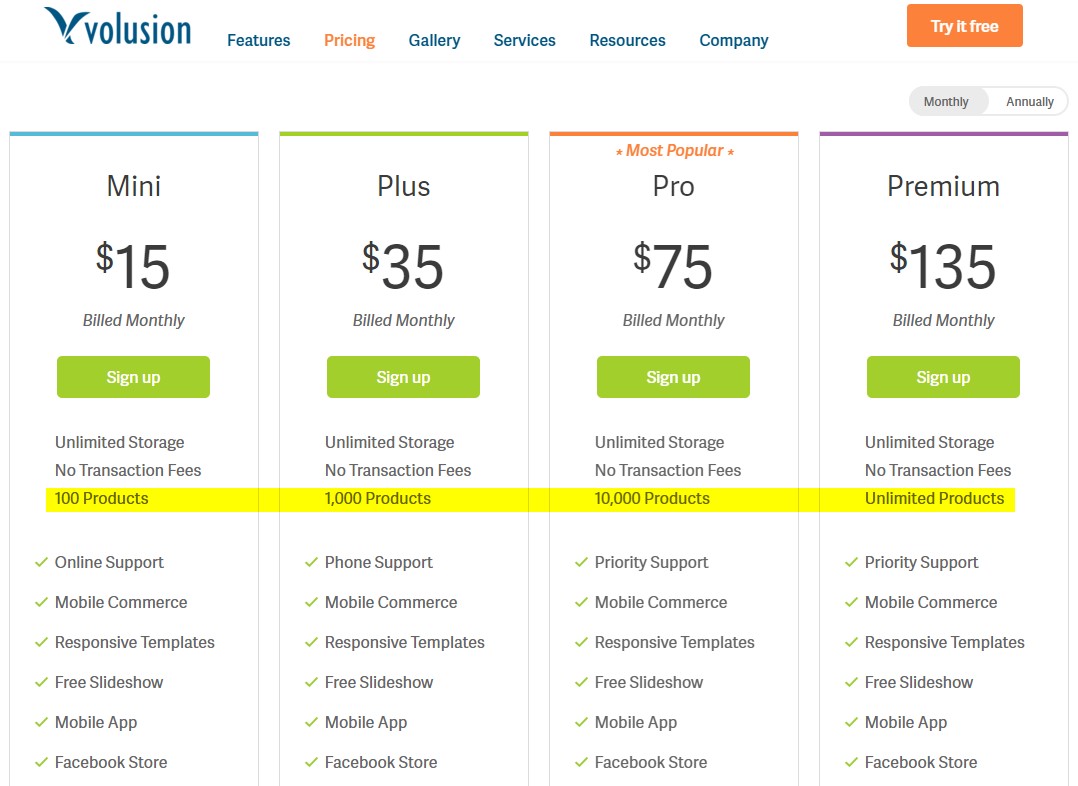
Volusion one of the oldest of online shopping online platforms available in the market. Founded in 1999, Volusion platform has contributed $21 billion in sales till this date.
Volusion is a premium e-commerce platform that supports small-to-big business. Volusion offers the solutions to retailers of every size because they can choose the right features from the four different plans.
Volusion gives an online retailer every tool necessary to make a highly functional and sophisticated online store. However it has a ‘Mini’ plan for small businesses to go online in a small budget.
- Suited even for business with large inventories
- Highly customizable
- Powerful inventory management
- No set-up fees
- Daily deal feature that helps in daily promotions
- Easy order processing from any device
- Free templates
- Limited data storage and transfer. Exceeding the limit costs more. Restrictive bandwidth
- Hidden fees
- No inbuilt blog like in Shopify
- Mixed reviews on customer response and service
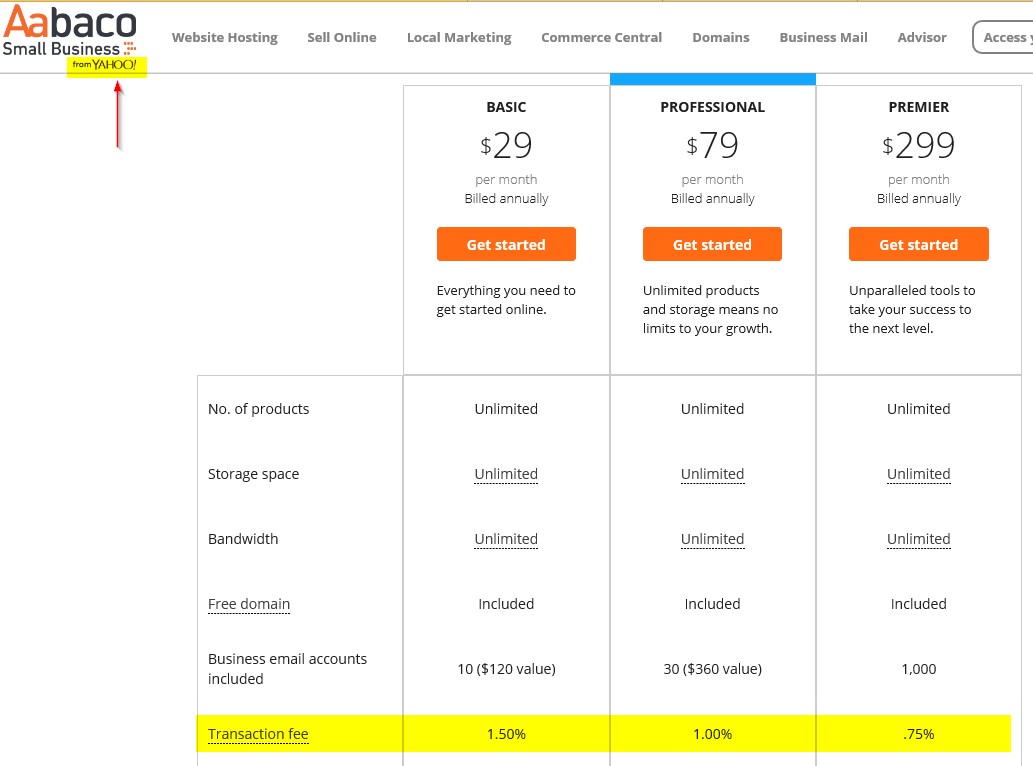
Re-launched in 2014, Yahoo Store is a cloud-based platform for your online business. It is well-suited to medium to large businesses. However, the starter plan is inexpensive for small businesses.
Offers three plans based on retailers monthly sales rather than number of products hosted (inventory).
- Suited for medium to large businesses (maximum 50,000 products in inventory)
- Strong customer support (24 hrs. phone and email support)
- Good web analytics integration
- Robust order management system
- Longest running e-commerce platform based on experience and knowledge support
- Major difference in the transaction fee rate between the plans
- Lags behind Magento, Volusion and Bigcommerce in innovation and optimization
- No free trial
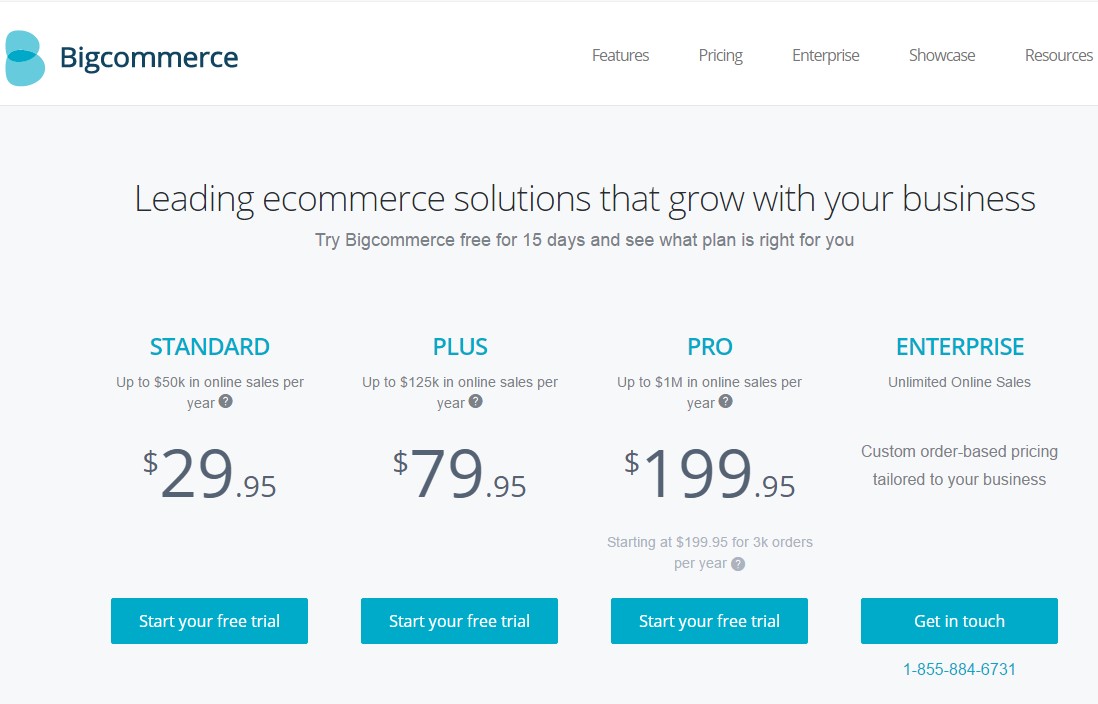
Bigcommerce founded in 2009, has delivered $5billions in cumulative sales for all the merchants. It has next-most clean dashboard after Shopify.
- Completely customizable store
- Easy and flawless migration from other stores
- Multi-layered security and Automatic Fraud detection
- Excellent Inventory management system
- Smooth third-party apps integration
- Default templates outdated in design
- Limited storage
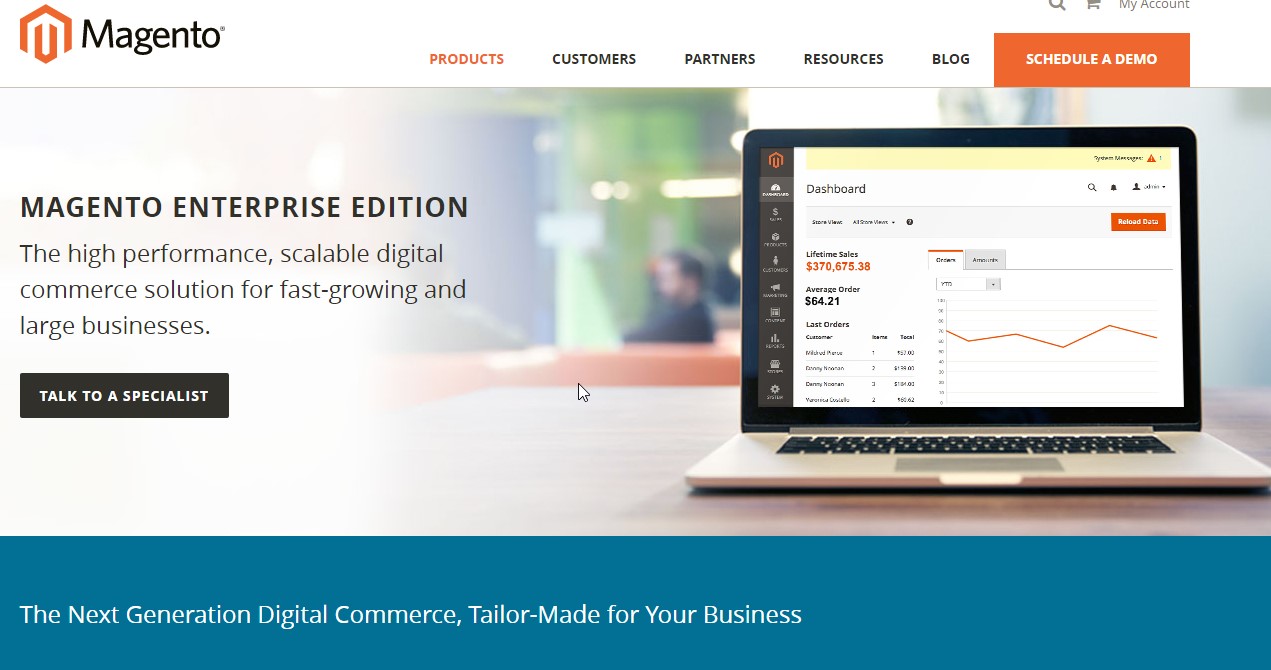
Magento founded in 2007 enjoys a worldwide Magento community support. Its 2015 upgrade, known Magento Enterprise has more features and functionality.
- Speedy, 2-step checkout
- Personalized content management
- Rich user interface for better merchandising results
- Seamless integration with existing third-party ERP, PIM, OMS, CRM, and CMS applications
- Global partner network
- Flexible deployment, easy maintenance and up gradation
- Very expensive compared to other platforms
- No technical support of site optimization, data migration, coding, customization.